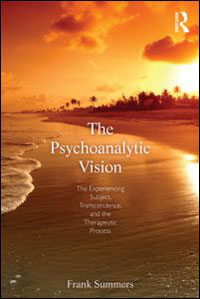
Frank Summers
The Psychoanalytic Vision The Experiencing Subject, Transcendence, and the Therapeutic Process
(Routledge, 2013)
Psychoanalytic therapy is distinguished by its immersion in the world of the experiencing subject. In The Psychoanalytic Vision, Frank Summers argues that analytic therapy and its unique epistemology is a worldview that stands in clear opposition to the hegemonic cultural value system of objectification, quantification, and materialism. The Psychoanalytic Vision situates psychoanalysis as a voice of the rebel, affirming the importance of the subjective in contrast to the culture of objectification.
Founded on phenomenological philosophy from which it derives its unique epistemology and ethical grounding, psychoanalytic therapy as a hermeneutic of the experiential world has no role for reified concepts. Consequently, fundamental analytic concepts such as”the unconscious” and “the intrapsychic,” are reconceptualized to eliminate reifying elements.
The essence of The Psychoanalytic Vision is the freshness of its theoretical and clinical approach as a hermeneutic of the experiential world. Fundamental clinical phenomena, such as dreams, time, and the experience of the other, are reformulated, and these theoretical shifts are illustrated with a variety of vivid case descriptions.
The last part of the book is devoted to the surreptitious role beliefs and values of contemporary culture play in many forms of psychopathology.
For clinicians, The Psychoanalytic Vision offers a fresh clinical theory based on the consistent application of the subjectification of human experience, and for scholars, a worldview that provides the framework for a potentially fruitful cross-fertilization of ideas with cognate disciplines.
Contents:
Part I: Theory. The Experiencing Subject. Psychoanalysis, the Tyranny of Objectivism, and the Rebellion of the Subjective.The Emerging Psychoanalytic Ethic.
Part II: Clinical. The Romantic Interpretation of Psychoanalysis. Unconscious Psychic Acts and the Creation of Meaning. To Live in a Dream.The Transcendental Experience of the Other. Temporality and Futurity in the Analytic Process.
Part III: Culture and Therapy. The Experiencing Subject in a Numbers Culture . Searching for the Self in a World of Technology. Creating a Life Between Cultures. Conclusion: The Psychoanalytic Vision
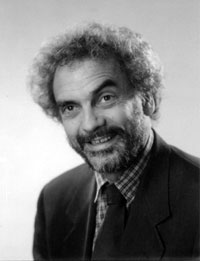 Frank Summers, Ph.D., ABPP is President of the Division of Psychoanalysis of the American Psychological Association, Professor of Clinical Psychiatry and the Behavioral Sciences at Northwestern University, and a Training and Supervising Analyst at the Chicago Institute for Psychoanalysis and The Chicago Center for Psychoanalysis. An Associate Editor of Psychoanalytic Dialogues and a member of the editorial board of Psychoanalytic Psychology, he has taught courses, given numerous workshops and conferences, and presented dozens of scientific papers both nationally and internationally. Winner of numerous awards, including the Hans Strupp Award for Contributions to Psychoanalysis and the Distinguished Educator Award of the International Federation of Psychoanalytic Education, Dr. Summers is author of three previous books and numerous articles and book chapters. He maintains a private practice of psychoanalytic therapy and psychoanalysis in Chicago, Illinois.
Frank Summers, Ph.D., ABPP is President of the Division of Psychoanalysis of the American Psychological Association, Professor of Clinical Psychiatry and the Behavioral Sciences at Northwestern University, and a Training and Supervising Analyst at the Chicago Institute for Psychoanalysis and The Chicago Center for Psychoanalysis. An Associate Editor of Psychoanalytic Dialogues and a member of the editorial board of Psychoanalytic Psychology, he has taught courses, given numerous workshops and conferences, and presented dozens of scientific papers both nationally and internationally. Winner of numerous awards, including the Hans Strupp Award for Contributions to Psychoanalysis and the Distinguished Educator Award of the International Federation of Psychoanalytic Education, Dr. Summers is author of three previous books and numerous articles and book chapters. He maintains a private practice of psychoanalytic therapy and psychoanalysis in Chicago, Illinois.
20% discount: use code HYJ82
Was: $44.95
Now: $35.96
To Order in the USA, Canada and Latin America:
Toll Free Phone:1-800-634-7064?
ORDER ONLINEhttp://www.routledge.com/books/details/9780415519403/
AND RECEIVE FREE SHIPPING FOR ONLINE ORDERS OVER $30
Frank Summers, Ph.D.
333 East Ontario Suite4509B
Chicago, IL 60611
Franksumphd@gmail.com
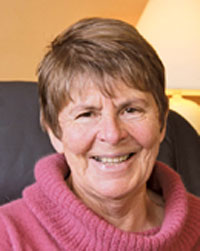 Sandra announces that she has an article that will be published in the British Journal of Psychotherapy in August.(http://onlinelibrary.wiley.com/doi/10.1111/bjp.12033/abstract) Religion in the Consulting Room. It considers working clinically with religious material that clients may bring into therapy. The article considers how this may impact on the therapist and may be thought about clinically. Winnicott’s idea of the play space and more recent considerations of play, playing along and pretend modes are used to reflect on the actual experience of working with the religious material brought by three different clients.
Sandra announces that she has an article that will be published in the British Journal of Psychotherapy in August.(http://onlinelibrary.wiley.com/doi/10.1111/bjp.12033/abstract) Religion in the Consulting Room. It considers working clinically with religious material that clients may bring into therapy. The article considers how this may impact on the therapist and may be thought about clinically. Winnicott’s idea of the play space and more recent considerations of play, playing along and pretend modes are used to reflect on the actual experience of working with the religious material brought by three different clients.
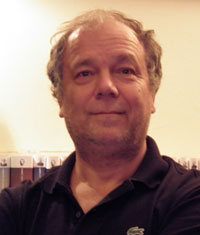

 Frank Summers, Ph.D., ABPP is President of the Division of Psychoanalysis of the American Psychological Association, Professor of Clinical Psychiatry and the Behavioral Sciences at Northwestern University, and a Training and Supervising Analyst at the Chicago Institute for Psychoanalysis and The Chicago Center for Psychoanalysis. An Associate Editor of Psychoanalytic Dialogues and a member of the editorial board of Psychoanalytic Psychology, he has taught courses, given numerous workshops and conferences, and presented dozens of scientific papers both nationally and internationally. Winner of numerous awards, including the Hans Strupp Award for Contributions to Psychoanalysis and the Distinguished Educator Award of the International Federation of Psychoanalytic Education, Dr. Summers is author of three previous books and numerous articles and book chapters. He maintains a private practice of psychoanalytic therapy and psychoanalysis in Chicago, Illinois.
Frank Summers, Ph.D., ABPP is President of the Division of Psychoanalysis of the American Psychological Association, Professor of Clinical Psychiatry and the Behavioral Sciences at Northwestern University, and a Training and Supervising Analyst at the Chicago Institute for Psychoanalysis and The Chicago Center for Psychoanalysis. An Associate Editor of Psychoanalytic Dialogues and a member of the editorial board of Psychoanalytic Psychology, he has taught courses, given numerous workshops and conferences, and presented dozens of scientific papers both nationally and internationally. Winner of numerous awards, including the Hans Strupp Award for Contributions to Psychoanalysis and the Distinguished Educator Award of the International Federation of Psychoanalytic Education, Dr. Summers is author of three previous books and numerous articles and book chapters. He maintains a private practice of psychoanalytic therapy and psychoanalysis in Chicago, Illinois.

 Covering everything from self knowledge, to bullying, gender and sexuality, and the separation or death of a parent, it is a veritable (if short and accessible) compendium of psychological and emotional skills for life.
Covering everything from self knowledge, to bullying, gender and sexuality, and the separation or death of a parent, it is a veritable (if short and accessible) compendium of psychological and emotional skills for life.
 This comic coming of age novel by Ted Jacobs was recently published by IP Books. It is titled The Year of Durocher. This is a story about love, rivalry, betrayal and the discovery of the meaning of true friendship in the wondrous years of adolescence.
This comic coming of age novel by Ted Jacobs was recently published by IP Books. It is titled The Year of Durocher. This is a story about love, rivalry, betrayal and the discovery of the meaning of true friendship in the wondrous years of adolescence. Theodore Jacobs
Theodore Jacobs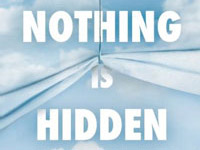
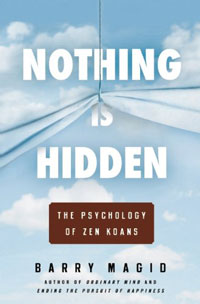 Barry Magid
Barry Magid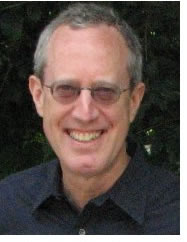 Ending the Pursuit of Happiness (Audio Book Version)
Ending the Pursuit of Happiness (Audio Book Version)
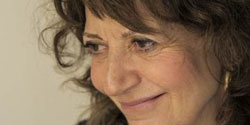 I would like to announce a new book just released in the UK.
I would like to announce a new book just released in the UK.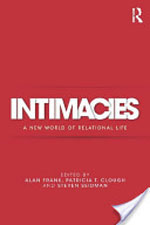 The chapter I have contributed is entitled Intimacy and Ambivalence. By recognizing the ubiquity of ambivalence about intimacy and understanding the sources, functions and impacts of this ambivalence, therapeutic clinical work can help individuals and couples illuminate the choices, conscious and unconscious, that we make in seeking to fulfill intimacy needs.
The chapter I have contributed is entitled Intimacy and Ambivalence. By recognizing the ubiquity of ambivalence about intimacy and understanding the sources, functions and impacts of this ambivalence, therapeutic clinical work can help individuals and couples illuminate the choices, conscious and unconscious, that we make in seeking to fulfill intimacy needs. Daniel Shaw, LCSW is a psychoanalytically oriented psychotherapist in private practice in New York City, and in Nyack, New York. He is a training analyst, teacher and supervisor of analytic candidates at the National Institute for the Psychotherapies in New York City
Daniel Shaw, LCSW is a psychoanalytically oriented psychotherapist in private practice in New York City, and in Nyack, New York. He is a training analyst, teacher and supervisor of analytic candidates at the National Institute for the Psychotherapies in New York City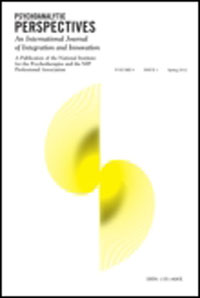 Janine de Peyer
Janine de Peyer Ruth Litjmaer
Ruth Litjmaer